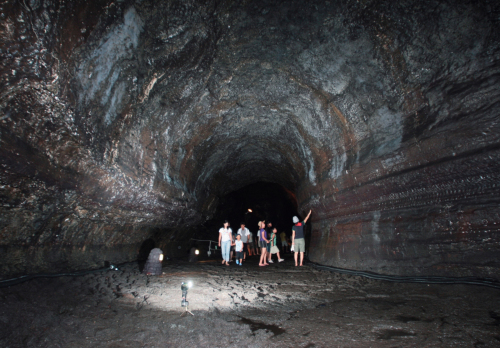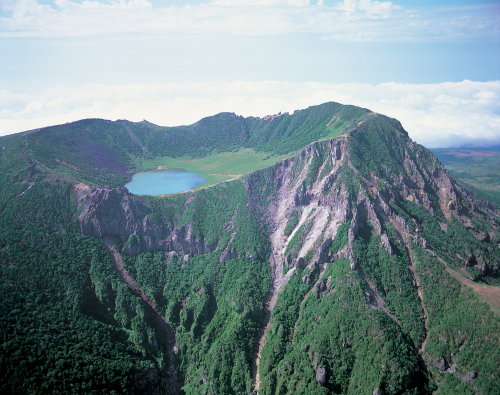Nine geological sites in Jeju Island were designated as “world geoparks” by UNESCO’s Global Geopark Network of National Geoparks (GGN) on Sunday.
At the 9th European Geoparks Conference on the Greek island of Lesvos, the steering committee of GGN officially announced the addition of the nine Jeju attractions to its list of world geoparks.
The nine designated sites are: Mount Halla, Seongsan Sunrise Peak, Manjanggul Cave, Seogwipo stratum, Cheonjiyeon Falls, Jusangjeolli cliffs, Mount Sanbang, Yongmeori Beach and Suwol Peak.
At the 9th European Geoparks Conference on the Greek island of Lesvos, the steering committee of GGN officially announced the addition of the nine Jeju attractions to its list of world geoparks.
The nine designated sites are: Mount Halla, Seongsan Sunrise Peak, Manjanggul Cave, Seogwipo stratum, Cheonjiyeon Falls, Jusangjeolli cliffs, Mount Sanbang, Yongmeori Beach and Suwol Peak.

This gives Jeju Island a “Triple Crown” UNESCO designation, along with Mount Halla’s Biosphere Reserve recognition in 2002 and Natural Heritage Sites designation of Mount Halla, Seongsan Sunrise Peak and Manjanggul cave in 2007.
Oh Soo-jung, an official from Jeju Special Self-Governing Province, said the world geopark designation has a different meaning compared to the two from the past. “The Biosphere Reserve and Natural Heritage recognition stressed preservation,” she said. “So a lot of Jeju residents felt they could not touch or make use of the recognized sites. But this world geopark designation gives a lot of room for development of local economy and tourism, and getting more foreign tourists to the island.”
Jeju was also asked to launch Asia-Pacific Geopark Network meeting in 2013, Oh said. “China and countries in Southeast Asia attract many tourists from overseas and Jeju has been thinking of ways to be more competitive,” she said. “The ‘Triple Crown’ UNESCO designation can now be a great resource for the promotion for the island, especially for the international crowd.”

The GGN designations are aimed to promote tourism and conserve natural resources of geological heritage around the world. So far, 66 sites from 21 countries have been certified by UNESCO as world geoparks, including Japan’s Unzen Volcanic Area Geopark and Indonesia’s Mount Rinjani. Jeju’s designation marks the first time for Korea’s geological sites to gain world geopark status.
Jeju is planning on providing geology education on the recognized sites to the general public, while promoting them for tourism purposes at the same time.
By Claire Lee (clairelee@heraldcorp.com)




![[Herald Interview] 'Amid aging population, Korea to invite more young professionals from overseas'](http://res.heraldm.com/phpwas/restmb_idxmake.php?idx=644&simg=/content/image/2024/04/24/20240424050844_0.jpg&u=20240424200058)











![[KH Explains] Korean shipbuilding stocks rally: Real growth or bubble?](http://res.heraldm.com/phpwas/restmb_idxmake.php?idx=652&simg=/content/image/2024/04/25/20240425050656_0.jpg&u=)

